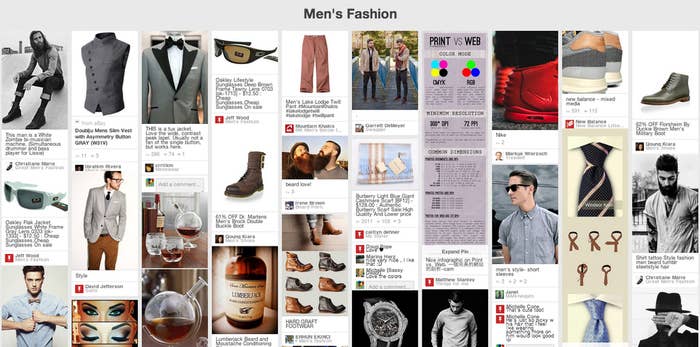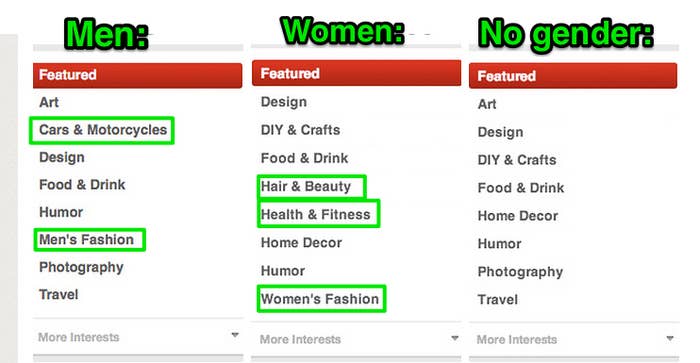
The problem of what to show new members is a universal one for social networks. Pinterest, like Facebook and Twitter, has an on-boarding procedure to help people understand how to use the service, and to ensure that when they sign on they're not staring at an empty screen. For Pinterest, the most important aspect of the process is recommending new boards to follow.
Pinterest asks for but does not require a gender during direct sign-up; if you sign up through Facebook, it reads your profile to establish where you live, who your friends are, and what gender you have declared (and possibly but not obviously more).
This is where things get a little weird: Pinterest's content recommendation screen seems to tailor its suggestions to your gender, if it's present.
When you create a new account using an email address, it asks you to select male or female. If you skip the gender question, you can proceed with the sign-up, and it'll list you as "unspecified" in your profile (you can change that later). When signing up with Facebook, your gender is automatically provided.
Here's what each option looks like:
Suggested board topics with gender-specific topics highlighted:

It makes sense to only show explicitly gendered categories like "Men's Fashion" to people who identify as "Men." But other categories that are ostensibly gender-neutral like "Cars" are only being suggested to male users (women drive cars too!).
Presumably, this is driven by existing user habits on the site, and not some misogynist grinch at Pinterest HQ saying, "Women don't care about art!" But there's a lot of middle ground! These distinctions are the kind of broad assumptions marketers and advertisers make about websites and publications all the time, but Pinterest is a site where people make their own profiles.
"We're trying out a few different ways of recommending boards and pins to pinners," a rep for Pinterest said. "In this particular new user experience, we try to pick the most relevant categories possible, and update the boards based on activity and popularity."
Of course, women interested in cars or men interested in hair will be able to discover content on their own; these are just the recommendations for initial sign-up. What makes this interesting is that Pinterest is serving a slightly different experience to users based on gender right off the bat.
